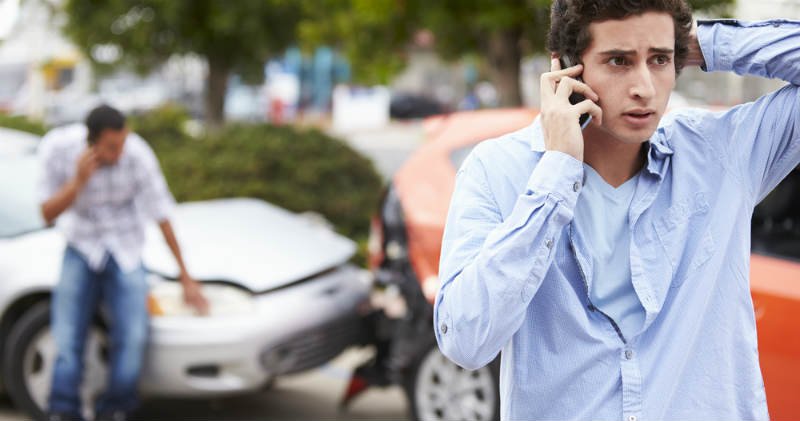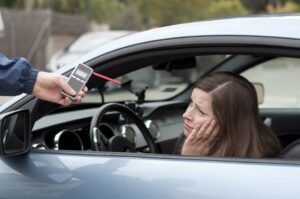
A line item in the $1.5 trillion transportation and infrastructure bill passed by the U.S. House in July could lead to automation in cars to identify drivers who are intoxicated.
The provision requires the National Highway Traffic Safety Administration (NHTSA) to develop a rule within five years that requires advanced drunk driving prevention technology in all new cars, the Washington Examiner reported.
NHTSA and automakers are researching a Driver Alcohol Detection System for Safety (DADSS), which passively tests driver intoxication through breath or touch and does not require the driver to blow into a breathalyzer. If the technology detects blood alcohol concentration (BAC) at or above the legal limit of 0.08 percent, it would prevent the car from moving.
“The federal government has been pumping tens of millions of dollars into research and development of the DADSS system, and bipartisan support has emerged for requiring car manufacturers to include it in new vehicles,” the Examiner says.
Whether the idea will come to fruition any time soon remains an open question. Politico says the House legislation “has little chance of being signed into law as written” due to opposition in the Senate. The Examiner report characterizes legislators as “inching toward” the mandate to require drunk driving technology in new cars.
Understanding Modern Car Safety Technology
The NHTSA says new driver assistance technologies hold the potential to reduce the number of car accidents and save thousands of lives each year. Some systems are designed to warn the driver if they are at risk of a crash, while others are designed to take action to actively avoid a crash.
Car and Driver magazine points out that the number of driver assistance safety features available to car buyers has expanded quickly in recent years. This makes it easy to be confused about what is available and what is worth the added cost when buying a new vehicle.
Some of the more popular new safety features available are:
- Forward collision warning, which detects a potential collision and provides a warning to the driver.
- Automatic emergency braking, which applies brakes automatically when a forward collision is imminent.
- Blind-spot monitor, which alerts the driver to other vehicles that might be in the driver’s blind sport or hidden by the car’s roof pillars.
- Lane departure warning, which alerts drivers when they drift out of their lanes without a turn signal.
- Driver-attention monitor, which monitors the car’s movements and volume of steering corrections to determine whether the driver is paying attention to the road or maybe tired or texting. It alerts the driver.
How Will New Car Technology Stop Drunk Driving?
 The recently passed House infrastructure bill would call on the NHTSA to work with automakers to require installing the drunk driver detection technology in new cars, the Examiner says.
The recently passed House infrastructure bill would call on the NHTSA to work with automakers to require installing the drunk driver detection technology in new cars, the Examiner says.
The Driver Alcohol Detection System for Safety Program says on its website that it is researching “a first-of-its-kind technology that holds the greatest potential we have seen.” The program is exploring two different technologies: a breath-based system and a touch-based system.
Currently, engine interlock systems placed in vehicles owned by drivers convicted of drunk driving require an operator to breathe into the device for the car to start. If the device detects alcohol, it will stop the car from starting.
The DADSS breath-based system under development is designed to unobtrusively analyze alcohol in the person’s breath when he or she is in the driver’s seat. It will be designed to take instantaneous readings as the driver breathes normally and to distinguish between the driver’s breath and any passengers’ breath.
The DADSS touch-based system would measure blood alcohol levels under the skin’s surface by shining an infrared-light through the fingertip of the driver. More specifically, it detects the blood alcohol content in the driver’s capillaries. It will be integrated into current vehicle controls, such as the start button or steering wheel, and take multiple readings.
Once a system has met performance standards, it will be voluntarily offered as a safety option in new vehicles, the DADSS Program says. Currently, the DADSS project envisions that some manufacturers will begin offering the ambient-air-based system as an option as early as 2025.
A study released by the Insurance Institute for Highway Safety (IIHS) in late July says alcohol detection systems that stop people from drinking and driving could prevent more than a quarter of U.S. road fatalities and save upwards of 9,000 lives a year.
Alcohol has been a factor in 30 percent of U.S. roadway deaths every year for the past decade, the IIHS says. Meanwhile, police arrest about 1 million people a year for alcohol-impaired driving.
Charles Farmer, IIHS vice president of research and statistical services and the author of the study, says if alcohol-detection systems were required for all new vehicles beginning this year, some lives would be saved immediately. However, it would be 12 years before the systems became common enough among all cars on the road to save 4,596 lives a year — less than half their potential.
In a 2009 survey of U.S. drivers, nearly two-thirds of the respondents said they would support the installation of similar systems in all vehicles, as long as they were fast, accurate, and unobtrusive, the IIHS says.
However, the Examiner report says the American Beverage Institute (ABI), which represents over 8,000 restaurants, opposes the DADSS Program. The technology can’t accurately measure a driver’s blood alcohol content as it metabolizes, so the DADSS system is likely to be set for measurements as low as .03 or .04, the ABI contends.
Contact Our Drunk Driving Accident Lawyers
South Carolina is considered one of the most dangerous states in the nation for its drunk driving problem. If you have been injured by another driver in a drunk driving accident in South Carolina, you may have a right to seek compensation for your losses. Our drunk driving accident lawyers at Joye Law Firm will work to get the money and benefits you are entitled to by law.
Call Joye Law Firm at 877-941-2615 or fill out our free online case evaluation form. We have drunk driving lawyers in North Charleston, Columbia, Clinton, and Myrtle Beach.







































